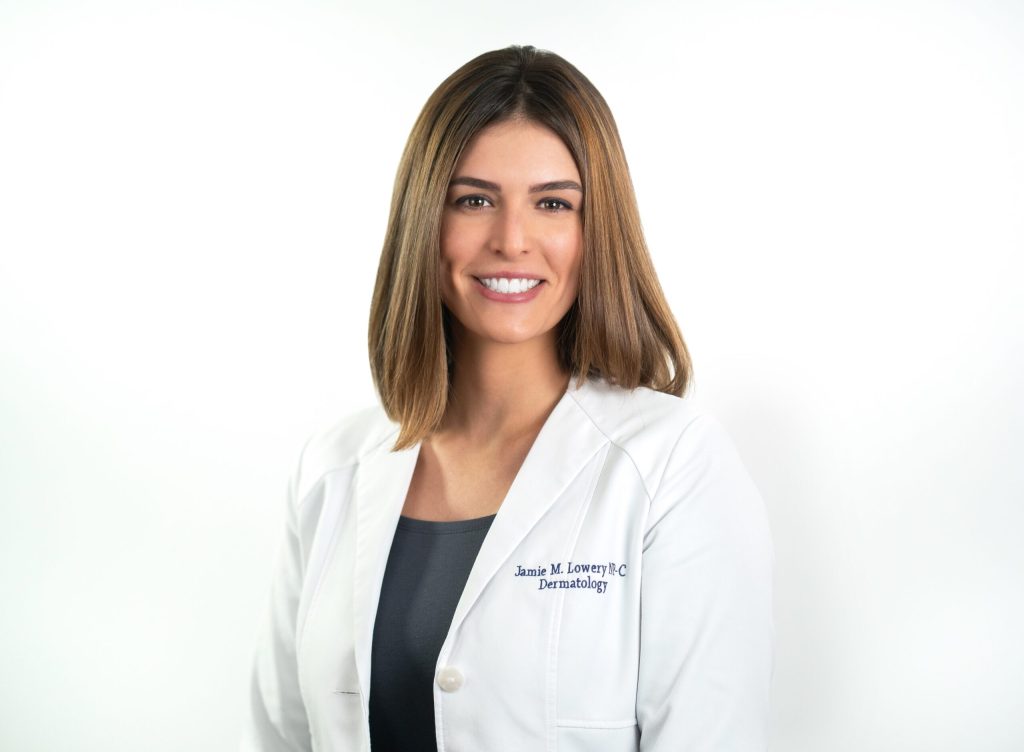HI, I’M JAMIE LOWERY, one of the providers at Northeast Dermatology Associates in Portland. I am a board-certified Family Nurse Practitioner, and a member of the Dermatology Nurses Association and the American Association of Nurse Practitioners.
When people find out what I do, a common question they ask is: how do I prevent signs of aging? Everyone’s skin ages in different ways, but there are some universal ways to care for it.
For everyone
Wear sunscreen (30 SPF and over) every day. We can embrace natural aging, but the sun can accelerate signs and symptoms of aging. Avoid the sun between 10 a.m. and 2 p.m., when UVB/UVA rays are most intense. And remember: the sun shines all year long! In addition to annual screenings, we recommend performing a skin self-exam. To learn how, visit the American Association of Dermatologists.
Infants and Children
Sunscreen has been approved by the FDA over the age of 6 months. UV protective clothing and shade are great choices for wiggly little ones! Wide-brimmed hats will fully protect their face, scalp and ears.
Teens and 20s
If you are experiencing acne, you should see a dermatology practitioner about your concerns. It is not impossible for people to develop skin cancers at this age, so I know it goes without saying, but do not indoor tan! Indoor tanning increases the risk of non-melanoma and melanoma skin cancers.
30s and 40s
Start annual skin cancer screenings. Establishing care now with a dermatology practitioner you feel comfortable with means they can get to know your skin as it changes. Some patients at this age will consult with me on non-invasive, anti-aging procedures. In my office, we offer a wide range of facial cosmetic injectables and dermal fillers. I can also prescribe appropriate, non-procedural, anti-aging products. You can learn more about what we offer at nedermatology.com.
50s and 60s
At this point, a skin cancer diagnosis from long-term exposure is not always uncommon. Therefore, annual skin cancer screenings are vital. Add a product with hyaluronic acid to your daily skincare regimen to combat loss of elasticity. Changes in skin texture and/or pigmentation can be managed with a prescription from your dermatology practitioner. Remember that hormone changes, diet and exercise can also affect your skin.
70 and beyond
During this time in your life, your skin may be drier and thinner. You can develop more age spots, become susceptible to skin infections, bruise more easily and develop new lesions that raise concerns.
Northeast Dermatology Associates has served New England communities for over 70 years. Their offices are all full service, in-house providers.
NEDA Portland is now accepting new patients with immediate openings for appointments. Call 978-691-5690 or book online at nedermatology.com
Comments are not available on this story.
Send questions/comments to the editors.


